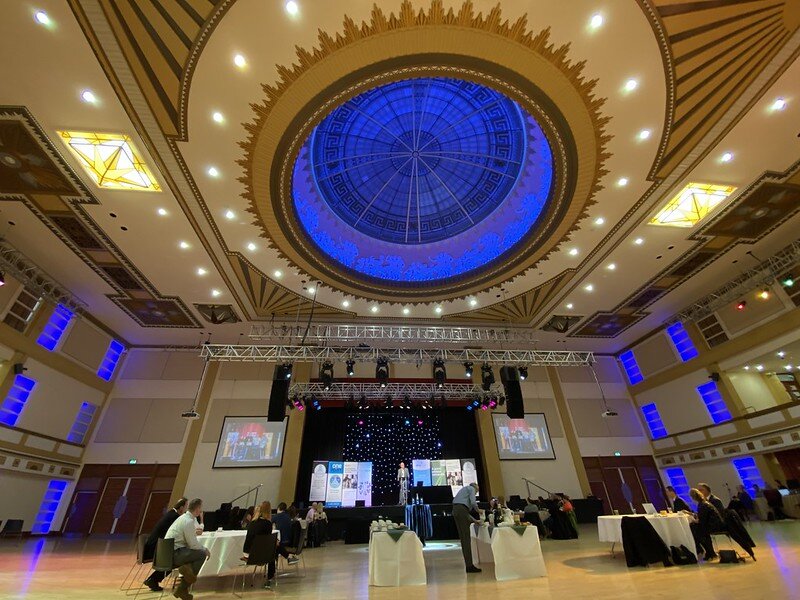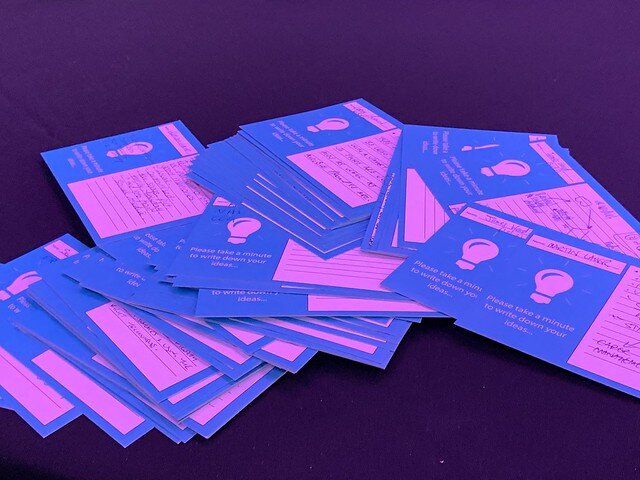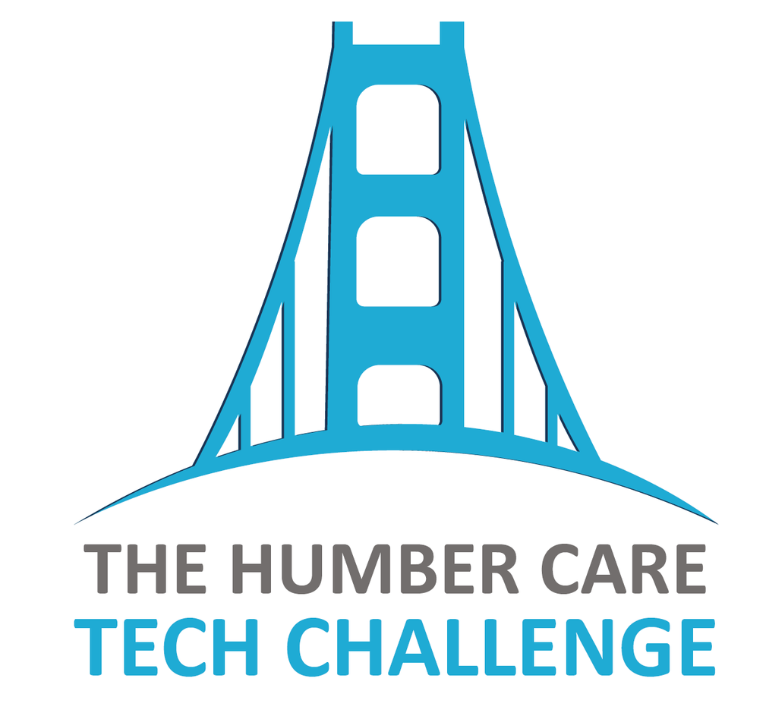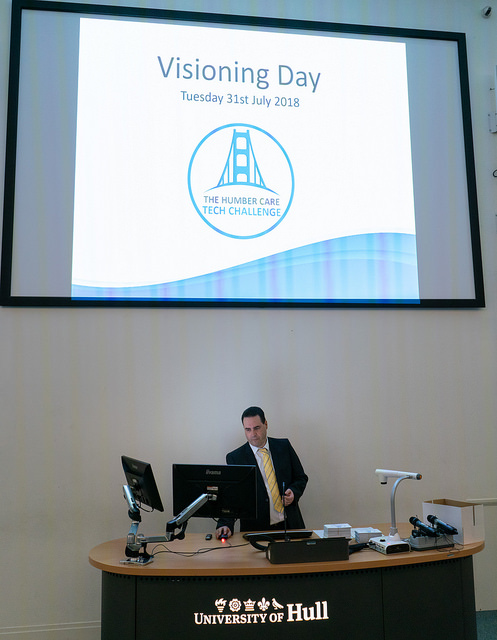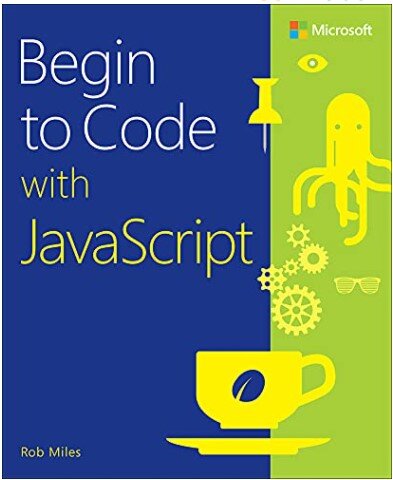Top Five Finish in the Humber Care Tech Challenge
/This was our work area. Keith is posing with a rather nice multimeter. We had the camera in the middle of the table and cupboard (full of sweets), kettle (borrowed jug) and sink (we had everything but the kitchen sink it turned out). The tracking could tell which of the locations you were standing at, and also when you were moving. You can see a horrible, but mercifully short, video of it mostly working here. When the outline flashes white it means that the person has been detected at a location.
Once we had something working it was time to make a presentation in the event that we made “top five” and had to present to the finalist judges. We put together a quick bit of PowerPoint and then dropped it onto my elderly (but still working fine) Surface Pro 3 ready for use.
Turns out we were picked first to present, which was great fun. We didn’t win though, which is not surprising when we saw what the other four teams had been doing. Some lovely presentations, some great ideas and huge chunks of enthusiasm. The winner has a fantastic solution to the issue of “sunsetting”. The great thing about the solution is that the path to deployment is well established and so I’m really looking forward to seeing it go out there. If you’re interested in my horrible code and presentation you can find them on GitHub here. I’m going to have a go at replicating the behaviour using an ESP32 camera.
I’ve put some pictures on Flickr here. They include the all important “firework” shot of the winners getting their richly deserved prize:
Huge thanks to the team for organising another excellent event.


